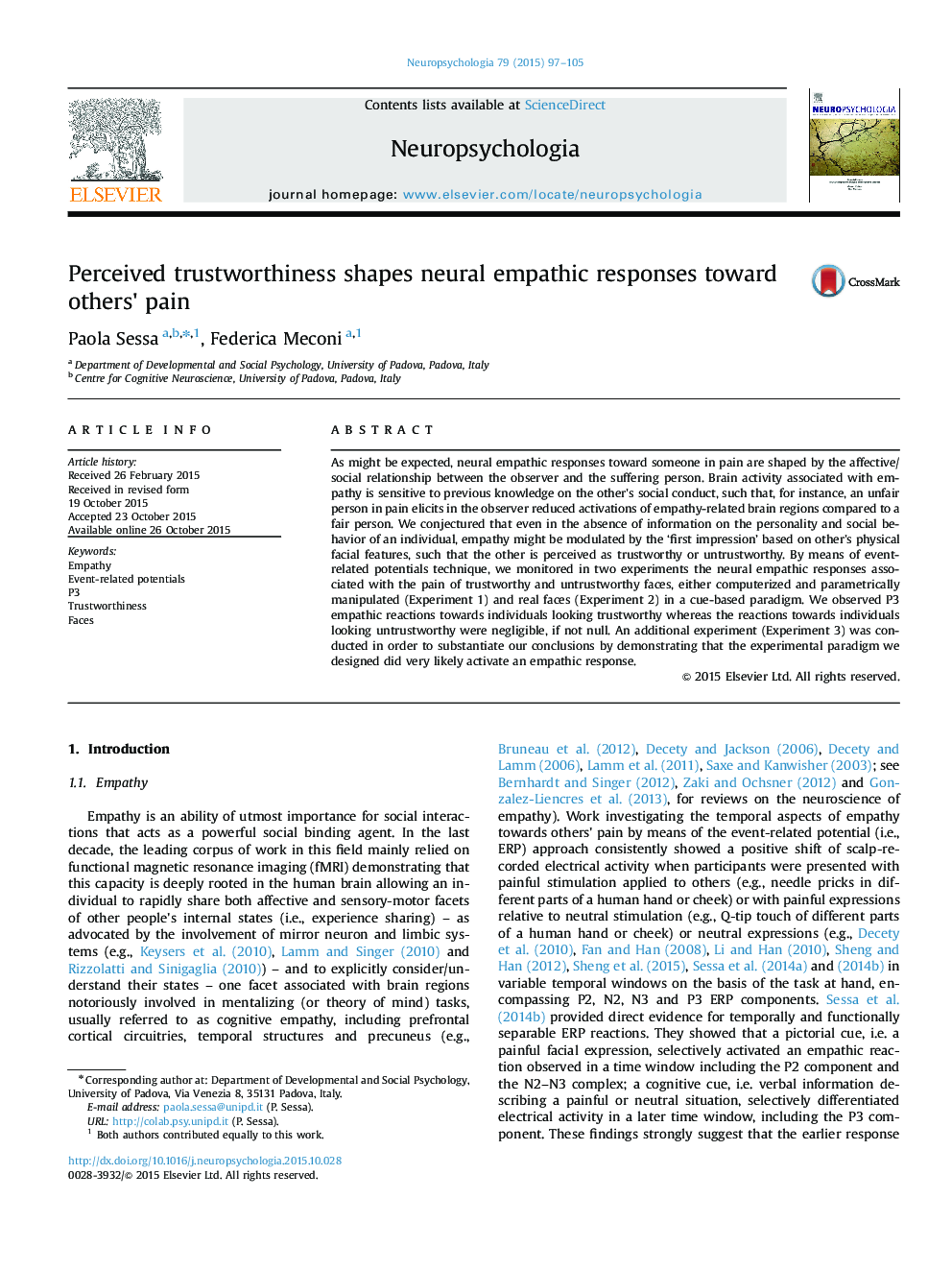| Article ID | Journal | Published Year | Pages | File Type |
|---|---|---|---|---|
| 944743 | Neuropsychologia | 2015 | 9 Pages |
Abstract
As might be expected, neural empathic responses toward someone in pain are shaped by the affective/social relationship between the observer and the suffering person. Brain activity associated with empathy is sensitive to previous knowledge on the other's social conduct, such that, for instance, an unfair person in pain elicits in the observer reduced activations of empathy-related brain regions compared to a fair person. We conjectured that even in the absence of information on the personality and social behavior of an individual, empathy might be modulated by the 'first impression' based on other's physical facial features, such that the other is perceived as trustworthy or untrustworthy. By means of event-related potentials technique, we monitored in two experiments the neural empathic responses associated with the pain of trustworthy and untrustworthy faces, either computerized and parametrically manipulated (Experiment 1) and real faces (Experiment 2) in a cue-based paradigm. We observed P3 empathic reactions towards individuals looking trustworthy whereas the reactions towards individuals looking untrustworthy were negligible, if not null. An additional experiment (Experiment 3) was conducted in order to substantiate our conclusions by demonstrating that the experimental paradigm we designed did very likely activate an empathic response.
Related Topics
Life Sciences
Neuroscience
Behavioral Neuroscience
Authors
Paola Sessa, Federica Meconi,
